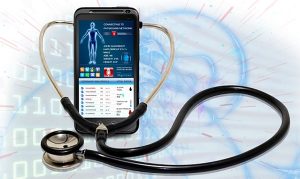By Dr Oliver Quick, Reader in Law (University of Bristol Law School) and Prof Anita Ho, Associate Professor of Bioethics (University of British Columbia).*
 This blog explores the implications of a specific type of information and communication technology on healthcare delivery: direct-to-consumer (DTC) self-monitoring devices and smartphone apps. The use of such technology is central to healthcare systems delivering more personalised care, and may be useful given an ageing population, the increasing prevalence of chronic conditions, and the aim of reducing hospital admissions. However, smart technologies may create a double-edged sword for therapeutic relationships and patient safety. When used properly, these technologies may promote safe and effective care by empowering patients to take charge of their own health and promote efficient sharing of relevant health information. However, if not regulated or incorporated appropriately into clinical care, smart technologies can pose significant ethical and safety concerns. (more…)
This blog explores the implications of a specific type of information and communication technology on healthcare delivery: direct-to-consumer (DTC) self-monitoring devices and smartphone apps. The use of such technology is central to healthcare systems delivering more personalised care, and may be useful given an ageing population, the increasing prevalence of chronic conditions, and the aim of reducing hospital admissions. However, smart technologies may create a double-edged sword for therapeutic relationships and patient safety. When used properly, these technologies may promote safe and effective care by empowering patients to take charge of their own health and promote efficient sharing of relevant health information. However, if not regulated or incorporated appropriately into clinical care, smart technologies can pose significant ethical and safety concerns. (more…)
